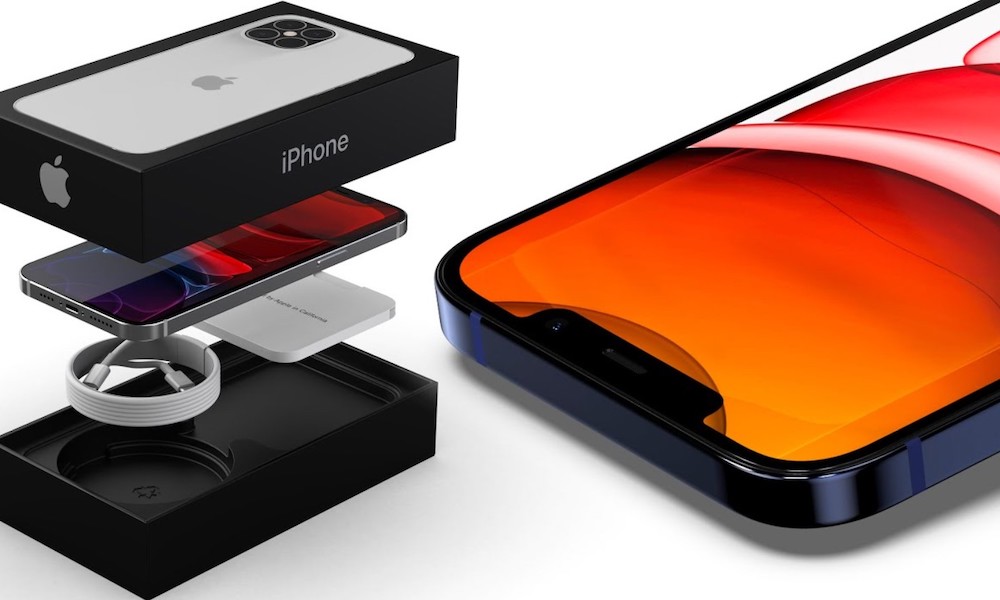Brazilian Regulator Fines Apple $2 Million for Selling iPhones without Chargers
 Credit: EverythingApplePro
Credit: EverythingApplePro
Toggle Dark Mode
Apple has been taking some heat from regulators in some countries over its controversial decision to remove the USB power adapter and EarPods from its iPhone last year, and now it looks like one country has levied an actual fine against Apple in response.
We first heard reports late last year that one of Brazil’s consumer protection agencies, Procon-SP, had taken issue with Apple’s new policy, declaring that the power adapter is an “essential part” of the iPhone product.
The agency contacted Apple back in October, shortly after the iPhone 12 lineup was announced, asking it to justify its decision to remove the power adapter. Although Apple apparently responded with the same statement that it gave the public — reducing the environmental impact of its product lineup — Procon-SP remained unconvinced that this was sufficient grounds for the power adapter’s removal.
In fact, even though Apple insisted that most customers should already have existing chargers, the regulator insisted that since Apple could not demonstrate that older adapters would remain safe to use, and was obligated to provide a brand-new adapter with every iPhone sold in that region.
In the very least, the agency noted, Apple should have done more to communicate this policy change to customers, further in advance. It also needed to guarantee that the use of third-party chargers would not result in a refusal of warranty services — a point that Apple was unwilling to concede.
Procon-SP basically concluded that if Apple requires a certain charger to be used for warranty purposes, it is legally obligated to include that adapter with the iPhone.
‘Misleading Advertising’
Following several attempts to get answers out of Apple, it looks like Procon has decided that Apple ultimately had no justifiable reason for removing the power adapter from the iPhone packaging, at least as far as Brazilian consumer protection laws are concerned.
As a result, according to Brazilian publication Tilt, the regulator has fined Apple $2 million for “misleading advertising, selling devices with factory defects, maintaining abusive clauses in the contract with consumers and not having repaired a product that was still within the warranty period”
Apple needs to understand that in Brazil there are solid Consumer Protection laws and institutions. It needs to respect these laws and these institutions.
Fernando Capez, Executive Director, Procon-SP (via Apple Translate)
To be clear, the Brazilian regulator’s action also encompasses more than just the removal of the power adapter. For example, the charge of “misleading advertising,” claims that Apple is lying when it advertises the iPhone as “water-resistant,” since it refuses to repair water-damaged iPhones under warranty. Italy’s antitrust watchdog recently hit Apple with a $12 million fine for essentially the same issue.
Procon also notes that it’s received complaints from Apple customers about problems resulting from iOS updates, as well as “disrespecting Brazilian law” regarding warranty repairs by refusing to repair products purchased outside the country.
In one of them the company exempts itself from all legal and implicit guarantees and against hidden or non-apparent defects; in another it informs that ‘the software distributed by Apple […] is not covered by warranty’ and that ‘Apple does not guarantee that the operation of the product will be uninterrupted or error-free,’
Procon-SP Statement (via Apple Translate)
The agency has also continued to question whether Apple’s claims of environmental impact truly hold water, since it believes that if Apple truly cares about the environment, it should be doing a lot more in other areas, such as handling the collection and recycling of older devices and accessories. Procon notes that this would provide a much more positive environmental impact than simply removing the charger.
What This Means
The regulator’s decision isn’t final, as Apple still has the opportunity to appeal it to a higher power with the Brazilian government, and possibly even take it to court. While $2 million is pocket change to Apple, it’s likely to fight the decision just to avoid allowing a precedent to stand that might put ideas in the heads of other government regulators around the world.
As Tilt notes, there have also already been cases around this that have been favourable to Apple. Earlier this year, a judge from São Paulo found in favour of Apple in a consumer lawsuit accusing the company of tying the sale of the charger to the sale of the iPhone.
Further, Tilt quotes one Brazilian judge as saying that “in Brazil, capitalism prevails,” and it’s not the place of the courts to prohibit companies from setting pricing policies for their products.
Although Brazil is the first country to take issue with the removal of the power adapter from the iPhone packaging, Apple had to continue including the EarPods in France to comply with laws designed for protecting children from potentially harmful radiation effects from cellular phones. In this case, however, Apple clearly knew that this was an issue, and stayed ahead of the game by offering the EarPods right from the start, avoiding any potential regulatory fines or litigation in that country.






